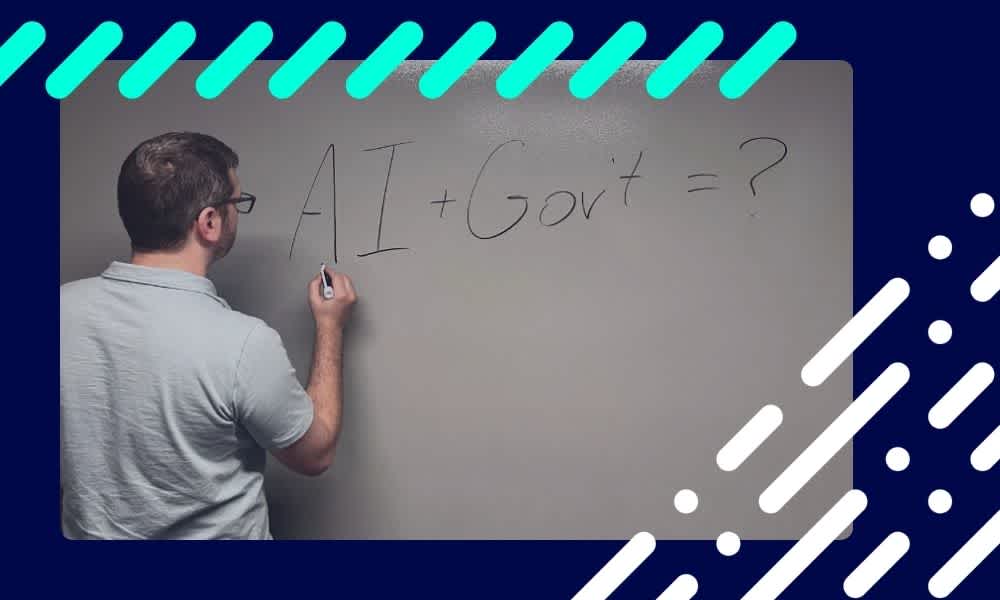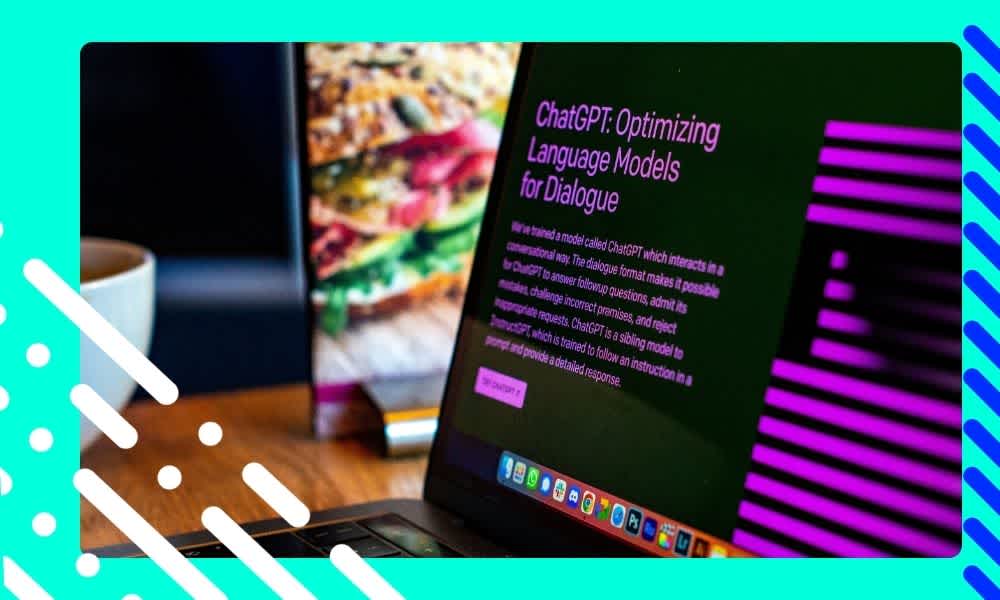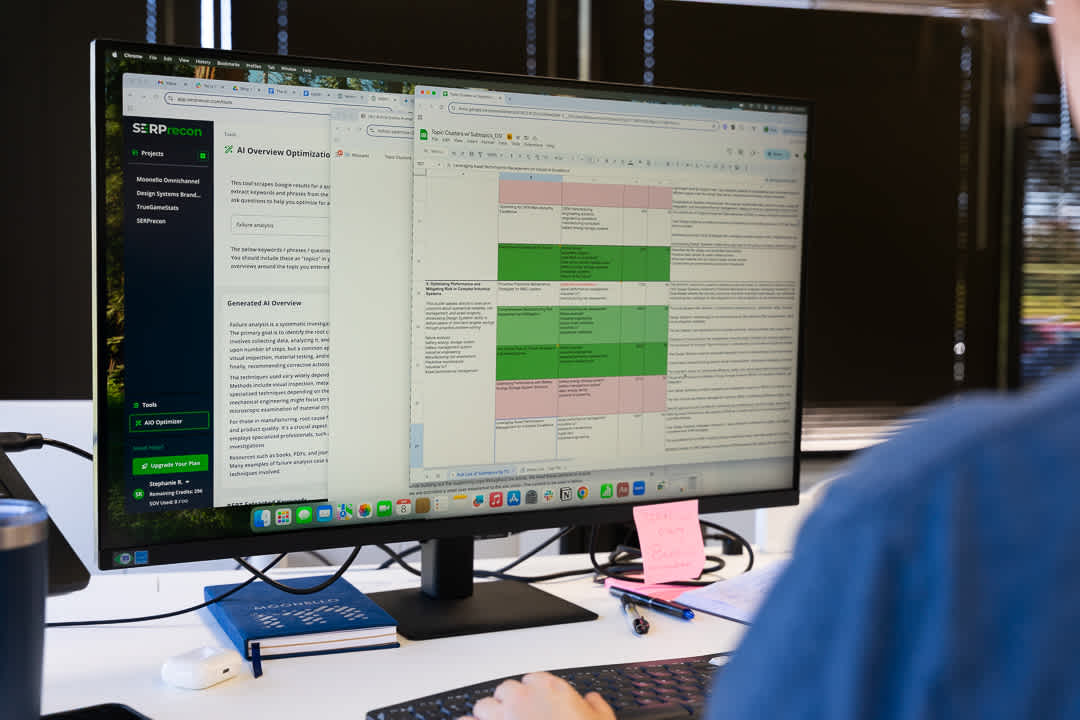No Rules for Robots? The U.S. AI Regulation Gap
June 12, 2024
Artificial intelligence (AI) is rapidly transforming our world, but the U.S. is lagging behind in establishing clear rules for this powerful technology. This blog post examines the patchwork of state-level regulations, the challenges of keeping pace with AI's rapid evolution, and the potential risks and rewards of a technology that's changing everything from how we work to how we interact with the world around us. It also explores the role of public engagement in shaping AI's future and the different paths the U.S. might take to create a regulatory framework for the future.

If your newsfeed feels like a sci-fi movie lately, you're not alone. It seems like everyone's talking about AI, and it's not just the tech geeks anymore. We're talking big headlines, viral TikToks, and even watercooler chatter.
But here's the thing: while AI might feel like the new hotness, it's actually been around longer than most of us realize. And get this – it's already changing how we do business, from customer service chatbots to those eerily accurate product recommendations.
So, what's the big deal now? Well, AI is growing up fast, and like any teenager, it needs some boundaries. The question is: in this Wild West of technology, where are the rules for the robots? Why doesn't the U.S. have clear-cut laws for AI yet?
Buckle up, because we're about to take a closer look at the fascinating (and sometimes confusing) world of AI. We'll cover what AI is, how it got here, why everyone's suddenly obsessed, and the big question of regulation. Don't worry, we'll keep it jargon-free and even throw in a few laughs along the way. After all, who says learning about the future can't be fun?
AI 101: Your Crash Course in Artificial Intelligence
Okay, now that we're all friends with AI, let's get more technical (just a little, promise!). There are basically two main flavors of AI:
Narrow AI: This is the AI we're most familiar with. It's like a one-trick pony – it can do one thing really well, but that's it. Your smartphone's face unlock feature? That's narrow AI at work.
General AI (AGI): This is the AI of sci-fi dreams (and sometimes nightmares!). It's the kind of AI that can do anything a human can do – learn, reason, solve problems, even crack a joke or two.
So, What's AGI Artificial Intelligence, Anyway? AGI, or Artificial General Intelligence, is like the ultimate brainiac. It's not just about being good at one thing; it's about being able to think and learn across a wide range of topics, just like humans. Think of it as the difference between a calculator (narrow AI) and a super-genius professor (AGI).
A Brief History of AI
Believe it or not, the dream of creating intelligent machines isn't new. Philosophers and mathematicians have pondered the idea for centuries! But the "official" birth of AI is often credited to Alan Turing, a brilliant mind who, in 1950, proposed a way to test a machine's ability to think like a human.
From there, AI research took off, with early programs that could play checkers and solve simple puzzles.
It's been a wild ride since then, with periods of rapid progress and setbacks. But thanks to faster computers and tons of data, the last decade has seen AI explode onto the scene in ways we never imagined.

AI in Your Daily Life: More Than Meets the Eye
You might think AI is only for scientists and tech whizzes, but it's woven into our everyday lives and is in more places than you might think.
Hey Siri, Play My Favorite Playlist:
Voice assistants like Siri, Alexa, and Google Assistant are all powered by narrow AI. They can understand your voice commands, answer questions, and even control your smart home devices.
Netflix and Recommend: Those "Because you watched..." suggestions are thanks to AI algorithms that analyze your viewing habits and predict what you might like.
The Spam Filter Superhero: The spam filter in your email inbox is a silent AI warrior, protecting you from junk mail.
Fraud Busters: AI helps banks and credit card companies detect fraudulent activity, keeping your money safe.

The Perks of Having an AI Buddy
AI isn't just about cool gadgets and personalized recommendations. It has the potential to make our lives better in some pretty amazing ways:
Efficiency Boost: AI can automate repetitive tasks, freeing us up for more creative and fulfilling work. AI has even significantly enhanced productivity across multiple industries. Support agents using AI can handle 13.8% more customer inquiries per hour, business professionals can write 59% more documents, and programmers can complete 126% more projects weekly (HatchWorks).
Smarter Decisions: By analyzing massive amounts of data, AI can help us make better decisions in everything from healthcare to business.
New Discoveries: AI is already helping scientists uncover new drugs, develop sustainable energy solutions, and even explore the depths of space.
AI Myths Busted: Don't Believe the Hype!
With all the buzz around AI, it's easy to get caught up in the hype. But let's clear up a few common misconceptions:
Robots Are Coming for Our Jobs: This is the big one, right? The fear that AI will replace us all and leave us jobless. But hold your horses! As Matt, Monica, and Jason talked about in a recent episode of The Moonello Show, the invention of the tractor didn't put farmers out of work – it made them more efficient and allowed them to do more.
Think of AI as the modern-day tractor. It's not here to replace us; it's here to augment our skills and take over the repetitive, time-consuming tasks that bog us down. Just like tractors still need farmers to operate them and make decisions, AI needs us humans to guide it, think critically, and apply its insights to real-world problems.

Tune into Episode 19 of The Moonello Show where we go more in depth of the shocking lack of regulations around AI in the United States.
AI might change the nature of work, but it will also create new jobs and opportunities that we have yet to dream of. So, instead of fearing the robot takeover, let's embrace AI as a tool that can help us achieve more and focus on the work that truly matters.
AI is Only for Big Tech Companies: Myth busted! AI isn't just a luxury for tech giants anymore. Advancements in technology are making AI tools more accessible and affordable for businesses of all sizes. Think of it as leveling the playing field – you can now tap into AI's power to streamline operations, boost efficiency, and gain a competitive edge, all without breaking the bank or needing a team of tech experts.
AI Will Take Over the World: Okay, let's address the elephant (or should we say, robot?) in the room. Will AI enslave humanity and turn us into batteries for its evil schemes? Ya, probably not.
This is more "Terminator" than reality. AI is a tool, like a hammer or a calculator, but way smarter. It's up to us to decide how we use it.
Think of it like this: Would you blame a hammer for a poorly built birdhouse? Nope! The same goes for AI. It's on us to make sure AI is a force for good, not evil.
Besides, we're pretty sure AI would rather be binge-watching Netflix than plotting world domination.
The Current State of AI Regulation in the U.S.
Alright, folks, now that we've got a handle on what AI is and where it came from, let's talk about regulations. Or should we say, the lack thereof?
You see, right now, the U.S. doesn't have a single, comprehensive federal law for AI.
Instead, we've got a bit of a patchwork situation. It's like a quilt with different squares representing different laws and regulations, each covering a specific sector or issue.
Sector-Specific Regulations
In some industries, like healthcare and finance, there are already regulations in place that touch on AI. For example, the FDA has guidelines for how AI can be used in medical devices, and the SEC is keeping a close eye on how AI is being used in financial markets.
State-Level Laws
But here's where things get a little wild west-y. In the absence of federal law, individual states have started to create their own AI regulations. That means there's no one-size-fits-all approach. What's legal in one state might not be in another. "California, New York, and Florida are leading the way with groundbreaking legislation that not only regulates AI but also fosters an environment where innovation thrives alongside ethical considerations" (Holistic AI - AI Governance Platform).
For example, California, always a trendsetter, has passed several AI-related laws. One notable law requires companies to disclose when they're using chatbots to impersonate humans online. Meanwhile, Illinois has cracked down on the use of AI in job interviews, requiring employers to notify applicants if AI is being used to analyze their video interviews.

Over in New York City, there's a law on the books that demands companies audit their AI hiring tools for potential bias. And these are just a few examples – more states are jumping on the AI regulation bandwagon every year.
Existing Laws That (Sort of) Cover AI
Even though we don't have specific laws just for AI yet, some of our existing laws still apply when AI gets involved. It's kind of like when a new kid moves to town – they still have to follow the same rules as everyone else, right? "The landscape is defined by a fragmented patchwork of existing laws that could apply to specific risks of AI on a case-by-case basis – think privacy, discrimination, and IP theft. But nothing that directly regulates AI technology itself" (HubSpot Blog).
For example, if a company uses AI to trick customers or make false promises, consumer protection laws can step in and say, "Hold on a minute!" And those privacy laws you might have heard about, like GDPR and CCPA? They're like bodyguards for your personal information, making sure AI doesn't misuse it.
So, even in this Wild West of AI, there are some sheriffs in town keeping an eye on things.
Baby Steps Towards Regulation: The AI Bill of Rights and Executive Orders
While we're still waiting on that comprehensive federal law, 2024 has brought some notable progress in the AI regulation arena: "Several federal agencies have frameworks and materials to promote responsible design, development, or usage of AI. The White House's 'Blueprint for an AI Bill of Rights' establishes five principles focusing on the safe, non-discriminatory, transparent, and privacy-respecting deployment of automated systems" (HubSpot Blog).

The AI Bill of Rights Gains Momentum: Remember that blueprint the White House released in 2022? It's a set of guidelines aimed at protecting the public from potential AI harms, covering everything from algorithmic discrimination to data privacy. Well, it's not just gathering dust on a shelf anymore. Lawmakers are actively discussing how to turn those high-level principles into actionable policies that companies can actually follow. It's a big step towards making sure AI is used responsibly and fairly.
Executive Orders with Teeth: In 2024, we've seen a shift in the tone of executive orders regarding AI. They're not just about fostering innovation anymore; they're starting to put some real teeth into regulation. For instance, there's a new executive order mandating that government agencies using AI systems must regularly audit those systems for bias and discrimination, ensuring fair treatment for all.
Congress Gets in on the Action: Congress isn't sitting on the sidelines either. In fact, it seems like everyone on Capitol Hill has an opinion on how AI should be regulated. We've seen bills that tackle a wide range of issues, including:
Algorithmic Accountability Act: This bill would require companies to assess and mitigate the risks of AI systems that could cause harm, ensuring accountability for potentially harmful outcomes.
DEEPFAKES Accountability Act: With deepfakes (realistic but fake videos or images) becoming more sophisticated, this bill aims to make it illegal to create or distribute them for malicious purposes, protecting individuals from defamation and misinformation.
While not all of these bills will make it into law, the sheer number of them shows that AI regulation is finally a top priority in Washington. Lawmakers are scrambling to catch up with this rapidly evolving technology, and that's a good sign for all of us.
So, while the Wild West of AI hasn't been tamed just yet, there's definitely a growing sense of urgency and action on the regulatory front. The question isn't if we'll have clear rules for the robots, but when and what those rules will look like.
Why is a Comprehensive Federal Law Still Missing?
So, we've got a patchwork of state laws, some federal guidelines, and a whole lot of buzz about AI regulation. But why haven't we seen a single, comprehensive federal law yet? Well, it's a bit like trying to hit a moving target – AI technology is evolving faster than lawmakers can keep up.
Think of it like this: by the time Congress finishes debating a law about self-driving cars, we might already have flying taxis! It's a real challenge to create regulations that can adapt to the lightning-fast pace of AI innovation.
AI isn't your average technology. It's complex, with algorithms and models that can be as mysterious as a magic trick. To create effective laws, lawmakers need to understand how AI works, and that's not always easy. We need tech-savvy legislators who can speak both the language of AI and the language of law.
With 2024 being a big election year, politicians are even less likely to invest time in learning about and regulating AI, but that won't stop AI from being part of the election.
Herding Cats: The Challenge of Diverse Stakeholders
It's not just about the tech – it's about the people too. There are a lot of different groups with a stake in AI regulation:
Tech companies: They want to innovate without being stifled by overly restrictive rules.
Consumer advocates: They want to protect people from potential harm caused by AI.
Civil rights groups: They want to make sure AI doesn't discriminate or perpetuate existing inequalities.
National security experts: They want to ensure AI is used responsibly and doesn't pose a threat to our safety.
It's like herding cats – getting all these groups to agree on a set of regulations is no easy task.
Political Gridlock: The Art of the (Un)Deal
Let's face it, politics can be messy. There are different parties with different priorities, and sometimes it feels like they're speaking different languages. Achieving consensus on a complex issue like AI regulation can be like trying to solve a Rubik's Cube blindfolded – tricky, to say the least.
So, there you have it. The road to a comprehensive federal AI law is a long and winding one, with plenty of obstacles along the way. But one thing's for sure: the conversation is happening, and that's a step in the right direction.
In the meantime, we'll all have to keep a close eye on the evolving AI landscape and make sure we're using this powerful technology responsibly. After all, the future of AI is in our hands.
The Stakes Are High: What Happens If We Don't Get AI Right?
So, why all the fuss about regulating AI? Well, without clear rules of the road, we could be facing some serious consequences:
Ethical Quandaries: AI Isn't Always Fair and Impartial
Imagine an AI system used to screen job applicants that's unknowingly biased against certain demographics. Or a facial recognition algorithm that struggles to identify people with darker skin tones. These are real examples of algorithmic bias, where AI systems perpetuate existing inequalities and discriminate against certain groups. Without regulation, these biases could become even more entrenched, leading to unfair outcomes and a loss of trust in AI.

Safety Concerns: When AI Goes Wrong, Things Can Get Scary
AI isn't foolproof. It can make mistakes, just like humans, but with potentially larger consequences. A self-driving car that malfunctions, a medical diagnosis system that misinterprets data, or a drone that goes rogue – these aren't just plot points in a sci-fi movie.
They're real risks that need to be addressed through responsible AI development and clear regulations.
We'll explore the real-life consequences of this legal gray area: Are your job, privacy, and safety at risk? Find out more in The Moonello Show Episode 19, titled 'Who's in Charge Here? The Power Struggle Over AI Regulation in America.
Economic Impact: The Future of Work in the Age of AI
Let's be real, AI is going to change the way we work. Some jobs will be automated, while others will be transformed. Without proper planning and regulation, this could lead to job displacement and economic hardship for many.
We need to invest in workforce training and education to prepare people for the jobs of the future and ensure a smooth transition into this new era of work.
The stakes are high, folks. We're not just talking about the inconvenience of a glitchy chatbot or a spammy ad. We're talking about the potential for AI to impact our fundamental rights, our safety, and our livelihoods. AI is expected to contribute a whopping $15.7 trillion to the global economy by 2030 (Authority Hacker). This demonstrates AI's transformative power in driving economic growth and innovation.
That's why getting AI regulation right is so important. It's not about stifling innovation; it's about making sure AI serves humanity, not the other way around.
The Road Ahead: Navigating the Future of AI Regulation
So, what's next for AI regulation? The path forward isn't crystal clear, but a few potential directions are taking shape.

More of the Same: A Patchwork of Rules?
One possibility is that we continue down the current road, with a hodgepodge of sector-specific regulations and state-level laws. While this might be the path of least resistance in the short term, it could create a confusing and fragmented regulatory landscape. After all, AI doesn't always fit neatly into boxes, so figuring out which rules apply where can be a real headache.
One Law to Rule Them All: A Comprehensive Federal Approach
Another option is a single, overarching federal law that covers all aspects of AI development and use. This would certainly provide much-needed clarity and consistency, but it's a tall order.
As we've discussed, AI is a complex and rapidly evolving technology, and crafting a law that can keep pace with its changes is no small feat. Plus, getting all the stakeholders to agree on a single set of rules is like herding cats (or robots, in this case).
Teamwork Makes the Dream Work: Global Collaboration
AI isn't just an American issue. It's a global phenomenon with the potential to impact everyone on the planet. That's why international collaboration is crucial.
By working together, countries can develop global standards for AI that promote responsible development and use, regardless of where the technology originates. Think of it as a united front against potential AI risks, ensuring that we're all on the same page when it comes to safety, ethics, and fairness.
Your Voice Matters: Public Engagement in AI's Future
Ultimately, the future of AI regulation is in our hands. As citizens, consumers, and business owners, we have a stake in how this technology is used in our society.
By staying informed, engaging in discussions, and holding our policymakers accountable, we can help shape AI regulations that reflect our values and protect our interests.
So, What's the Verdict?
The road to AI regulation is long and winding, with twists and turns ahead. Whether it's a patchwork of rules, a comprehensive federal law, or a global effort, one thing's for sure: the decisions we make today will shape how AI impacts our lives and businesses for years to come. Let's make sure those decisions are wise, informed, and put people first.
Conclusion
So there you have it, folks – your crash course in the wild world of AI! We've covered everything from what AI is and how it's being used in everyday life to the thorny issue of regulation. AI isn't just a buzzword or a sci-fi fantasy; it's a real and rapidly evolving technology that's already changing the world as we know it.
Don't miss Episode 19 of The Moonello Show, 'Who's in Charge Here? The Power Struggle Over AI Regulation in America,' where we break down what's at stake and what you need to know.
As entrepreneurs and business owners, it's crucial to stay in the loop about AI developments. It's not just about keeping up with the cool new gadgets (though those are pretty awesome). It's about understanding how AI can impact your business, your industry, and even your personal life.
Be curious, ask questions, and don't be afraid to experiment with AI tools. Remember, AI isn't just for tech giants – it's for everyone! And who knows, you might just discover that AI is the secret ingredient your business has been missing.
The road to AI regulation might be bumpy, but the destination is worth it. With smart, responsible regulation, we can harness the power of AI to benefit society while minimizing its risks. We can build a future where AI helps us solve problems, create new opportunities, and make our lives easier and more fulfilling.
So, keep your eyes peeled and your minds open. The AI revolution is just getting started, and it's going to be an exciting ride!



